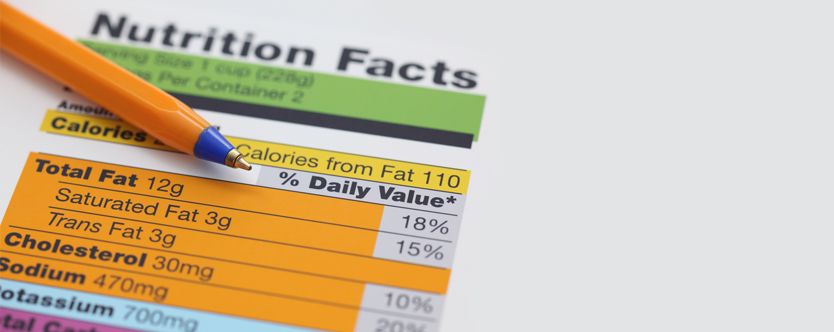
Many people these days are wary of the word ‘cholesterol’. However, contrary to the bad reputation it has received lately, cholesterol is essential for several important body functions including nerve heath and cell strength.
Cholesterol friendly foods
A fat-free diet may not be the best way to control cholesterol because not all fats are bad; what’s important is that you eat the right type of fat.
Cholesterol is produced by our liver and is also found in the foods we eat. Foods high in calories and saturated fats raise the LDL (bad cholesterol) levels while lowering the HDL (good cholesterol) levels. Conversely, unsaturated fats (MUFA) such as those found in mustard oil, rice bran oil, olive oil increase HDL levels and lower LDL levels. High levels of LDL could precipitate serious health conditions including heart disease. Apart from eating a well balanced diet, the following recommendations could help you maintain healthy cholesterol levels.
What to include
Include some carbohydrates from whole grain in your meal. Many people cut down on carbohydrates assuming that they increase weight. However, carbohydrates offer a range of health benefits that you cannot afford to ignore.
Dietary fiber
The dietary fiber found in cereals, fruits, vegetable and whole grains such as oat bran and brown rice keep the digestive system healthy. Whole grains enhance bowel and thyroid functions- a sluggish thyroid increases cholesterol levels.
Chromium
The chromium present in whole grains help to reduce triglyceride (molecules that carry or transport cholesterol around the body) levels and nutrients such as folic acid and B6 that are found in vegetables help the cells to break down homocysteine an amino acid found in non vegetarian foods if left to accumulate in the blood, it proves to be an additional risk factor for heart disease.
Fibrous carbohydrates
At each meal, fibrous carbohydrates should constitute 40-50 percent of your calorie intake, while fat should be not more than 20gms, of which, hydrogenated and fried fats should be minimized.
Limit your intake of sugar, alcohol and caffeine-in excess, they increase LDL levels. They are devoid of any nutrients but for processing, they make use of other nutrients, deplete your body and could increase cholesterol and triglyceride levels.
Fish
Have fish, preferably grilled or baked at least twice or thrice. The Omega 3 and fatty acids present in fish, especially deep-water fish, help in thinning the blood and reducing triglycerides.
Bad & good habits
Also, if you are the type who thrives on the ‘kick’ of smoking and caffeinated beverages, be aware that both nicotine and caffeine spike up blood glucose and the energized high that you enjoy stresses your liver which is forced to convert lean tissue to glucose, causing cholesterol to rise.
Exercise regularly because sedentary living can destroy your heart. Exercising utilizes the triglycerides stored as blood fats and stimulates the conversion of LDL to HDL.
Treat cholesterol with Health Total
Just as high cholesterol is undesirable (>180mg/dl) so is low cholesterol (<120mg/dl). It indicates that either the liver is not producing enough cholesterol due to weakness, poor immune function or due to an on going infection. Cells without cholesterol do not function properly and die. Without adequate cholesterol a person may experience depression, loss of sleep, and irritability or aggressive behaviour.
So don’t let your cholesterol ruin your life. Remember that balance and moderation are the keys to good health. Give us a call today on our toll free number ![]() 1-800-843-0206">
1-800-843-0206">![]() 1-800-843-0206 to book your first free appointment
1-800-843-0206 to book your first free appointment
and allow our medical experts to restore balance to our life and health.
